Things were kind of going downhill by the time 1995 came around and all the reorganizations and my job was going to disappear, and I wasn’t sure where I was going to land. And one day, Bob Haney came walking by and of course, I knew him from Jasper and we knew him personally. And he said, “Hey, I need somebody to act in the Backcountry Manager position in Banff. You wouldn’t happen to be interested, would you?” Well, that took about a quarter of a second to figure out the answer to that. So he said, “Well, come on up and we’ll set it up.”
4650 So I went to Banff in September 1995 and I acted as the Backcountry Manager for about 27 months or so and that was a pretty exciting time and neat job and an amazing staff and a big operation in a busy park too. That was all kinds of new stuff for me. Some of the accomplishments that we did; We really worked on enhancing the backcountry user experience by getting better signage and better information out to people so that we didn’t have people not knowing how to act in the backcountry because there were campgrounds in certain areas and in other areas they could camp randomly. So we tried to get a lot of info together for them and I think we succeeded, working with Mary Dalman and Don Gorrie a lot. Got the trailhead kiosks all upgraded with proper information and just made them a lot more user friendly.
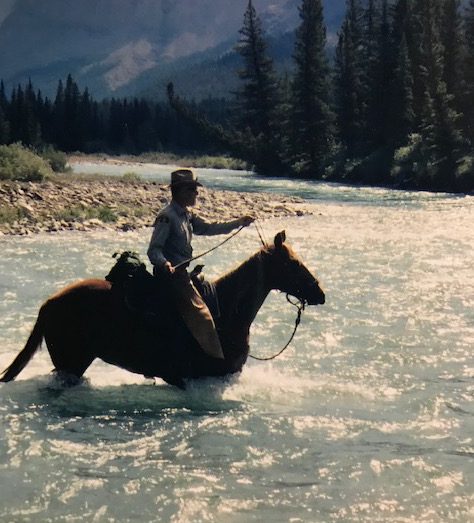
Doug Crossing River
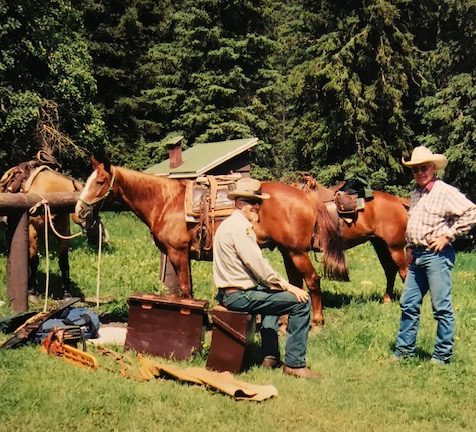
Doug and Rick YahaTinda Ranch
Another thing I had to do, which I found fairly difficult, was the decision was made to close the Mount Assiniboine trail to mountain bikes and being a keen mountain biker myself, I didn’t feel too good about that. But anyway, saw it through. And that decision wasn’t mine to make in any way shape or form. It was made by Tom Lee and maybe by Gaby Fortin a little bit as well.
The very last autumn before it closed I went in with a couple of friends and we stayed at Bryant Creek and rode up to Assiniboine and that was kind of the end. Anyway, that was less than totally pleasant. But we also did have some good accomplishments for the bike thing with formation of the Mountain Bike Alliance from Banff…getting them into an agreement where they can use the Tunnel bench area and build trails and they’ve built some pretty amazing trails in there now. So it kind of grew into something good anyway.
49:22 Had some pretty cool horse trips in the back country while I was the Manager and even after I was a Manager actually, which was pretty fun. And then once Ian Syme came back and took on the Backcountry Manager as a full time job (because I was only acting), then I went over to the Protection Operations Coordinator for the Frontcountry. That was a pretty different role, a lot of Law Enforcement, Duty Wardens, wildlife, campground. It was a real mixed job though and for me, that was the real attraction of Warden work was that it was such a variety, and the beauty of the generalist job that a lot of days you didn’t know what was going to come your way and you had to deal with whatever it was and that was a lot of fun.
A couple of things that came up during this time. The wolves were on the rampage one summer. I think it was the Bow Valley Pack that was very active around town for a couple of years. We would see the wolves frequently, visitors would see them a lot too. And a couple of the wolves in the pack started getting a little too familiar and started stealing food from people’s tables in the campground. So we realized we had to do something about them (two of the wolves were stealing the food) and we decided we would have to get rid of those two. And it took quite a bit of work because wolves are very smart. I sort of remember working with Ron Leblanc on the day we got one of them. And some of them were collared but I don’t think the one we had to take out was collared. But I had dropped Ron off and he was in position. And I had gone up and was monitoring where they were. And I realized they were heading his way. So I told him on the radio that they were coming and he was just outside one of the underpasses, and this wolf, it came up toward the underpasses and it realized something wasn’t right, and it didn’t want to go under and so Ron thought maybe he wasn’t going to get it but eventually the wolf decided it would go through and he went through it and Ron was able to shoot it. It wasn’t a thing we took lightly to shoot wolves but on the other hand when they get that familiar and we knew what had gone on in Pacific Rim with wolves getting familiar with people and then next thing you know, they’re biting people instead of just stealing food. So we took those two wolves out. There was also the time when Frances Frost was attacked by the cougar on cross country ski trails. So I didn’t attend that but Jim Murphy and one other Warden went in and shot the cougar but at the same time, there were other cougars around town. And so we had to have this general alert around town because there were cats hanging out in town. And so we had to go around town and alert everybody and then we had meetings for town people to come and get information. I remember working on one of those with Ian Syme and I think with Glen Peers and just trying to answer people’s questions and make sure people were really careful. And also remember one day we got a call and Ron and I responded. It was a house on Cave Avenue and these people said, “There’s a cougar in our yard”. And so we went right away to see what’s going on. Well, the cougar had a dead elk in their backyard and it was kind of covered up with sticks and snow. And when we got there, the cougar ran off but it didn’t go very far. So anyway, we got the elk out of there and that one didn’t show up again. But, it was just a crazy time that really wild animals suddenly are hanging around in town you know.
And of course that was the time when all the elk were in town too and we were doing our best to haze elk out of town and I remember we had John Zehnder with his three border collies hazing elk out of town and it was pretty cool. I remember I got called one day…there was a couple of elk on Banff Avenue and a bunch of tourists were around them and so of course we didn’t want that to happen. We didn’t want tourists around them. And I got there and it was like a little gaggle of tourists and they were all really excited…and a lot of Oriental visitors, and they were kind of chattering away and the elk was just totally ignoring them because this is just kind of how life is. When I drove up and I got out my shotgun with the rubber bullets and I shut the truck door and walked over…and the elk put its head up right away, and it looked at me and it actually could tell that I wasn’t one of the tourists. And before I could even shoot a bullet at it, it ran off! It was amazing. So they’re conditioned and they’re smart, they recognized cues. It was kind of incredible.
55:05 A couple of searches are in my mind. One…there was a young fellow from Quebec and he was just going to survey the south face of Cascade a bit for a climb that he was going to do with his friends in a few days, and then he went missing. And so his friends reported it and so we’re pretty sure he was on Cascade. But we looked and looked with a big team, and I think Gord Irwin was running the search, and we couldn’t find him and his friends…it was kind of sad, because I was around the office a lot…his friends would show up every day to stand vigil. They were waiting for him to be found. And eventually I had to say to his friends, “You know, as more and more time goes on, the chances of us finding him alive are going down.” So that was kind of sad, and eventually he was found and he had been caught in a little slide and dragged into a bit of a crack in the mountainside. I think, a couple of weeks later, when more snow melted they were able to spot him.
And then the other one that was kind of interesting. There was a guy hiking solo with three dogs, two small dogs and a big dog. And he was going to hike…I think he was coming up the Clearwater and going into the Cascade and going to come out at Red Deer Lakes and into Lake Louise. And anyway, he didn’t show up. And then once we got looking for him, his two little dogs showed up, but not him and the big dog. We knew approximately the route he was going to take, but we didn’t have a clue where he was. And the dog showed up, I think near Scotch Camp. We had put people on the ground all over the place looking for tracks, and the only place we really hadn’t searched by air was up on the Drummond Glacier. There had been stormy weather and it was socked in. The weather cleared enough and we were flying up there and we flew up over the col, because a lot of people got confused going up to Badger Pass, and they got in this kind of like a long couloir, and the trail actually turns to the left and goes on to the pass. But if you’re not really paying attention, you just keep going up the couloir, and he had done that and gone over a high col. At that point, the guy should have known this wasn’t right because you went down the other side onto a glacier. But anyway, who knows what was going on in his head. He’d got out on the Drummond Glacier, realized he was in the wrong place, and he had just kind of set up a little camp, and it was very odd. It was almost like he was planning to die there. So he was there with his big dog. We flew in and there he was, and he was alive. And so we picked him up and flew him out, and afterward, we heard that he wasn’t very grateful. It was just a strange thing that he hadn’t tried to rescue himself. Once he was on the glacier, why did he just stay in one place? You know, he could have backtracked or he could have just tried to help himself because he could see Douglas Lake down below. Yeah, so he could have tried to get down to there. But he hadn’t done any of that. It was quite odd.
5906 – While I was the Pro-Ops Coordinator, we also had the Warden Service in transition with the gun grievances and we were in and out of Law Enforcement a couple of different times, which was stressful for everybody. And of course, there was a lot of internal conflict over it because some Wardens wanted the guns and some Wardens didn’t and I think a lot of people, maybe everybody, sort of realized that this could mean the end of the Warden Service as we knew it, and that was causing more stress. In the end I retired before it got resolved and I’m kind of glad I did because I wouldn’t have been that happy to be there during the full on transition.
Memories of Banff are just how amazing the team was there, the Wardens, and everybody else who worked with the Wardens there were just so on top of their jobs, it was incredible. I felt like it was the easiest supervision I had ever done because you could ask somebody to do something and you didn’t have to explain how to do it, or anything. In fact, some of them probably knew how to do it better than I did. And the other thing we did that was kind of cool is we had a number of Wardens who went away on assignments, and then we’d bring in new GT1s, and run through the Recruit Training Program. And I think we had three or four Wardens from Banff going from that program into full time jobs in other Parks so I felt really good about that, you know, that we were developing people for the future, and that was the program I’d worked on while in the Calgary Office so that was kind of fun.
I felt really good about my time in Banff. It’s one of my favorite Parks. Late December 2006, was kind of my last working day. I went on a couple of Warden events in January, and then it was all over. And we had a big party for Glen Peers and myself and that wrapped it up. You know, it was a wonderful time and I sort of feel like I haven’t gone back and I didn’t feel like I wanted to. That jobs over I’ve moved on. 12 years total in Banff and my career spanned from 1975 until 2007.
In terms of my favourite Park, I mean, I loved them all. And Jasper is amazing. Absolutely amazing! But I think because I grew up in Calgary, and I was kind of around Banff off and on all my life. But the thing I liked about Banff is that there are huge challenges in Banff and a lot of people sort of don’t like it because of those challenges. But that’s what makes it really interesting to try and make that Park work.
MH: What did you like / Dislike about being a warden?
DE: Well, I think the teamwork is a really big part of it. But also the close to nature and working outdoors a lot. And I really liked the generalist nature the job that you got to try your hand at a ton of different things.
MH: What were some of your more memorable events as a Warden?
DE: There’s a fair bit of politics, both internal within the Warden Service especially in Banff, but in all the Parks, decisions are made far away by Managers who don’t necessarily have all the information or who think they have all the information and you don’t always agree with them. And yet, you’re not asked to agree, you’re just told this is the way we’re going and you have got to be on board. So sometimes that was difficult.
1:04:03
MH: I have another question, even though it’s not in here. So you were chief Park Warden in Nahanni, and you never wanted to pursue being a Chief somewhere else?
DE: When we were leaving Nahanni, I was offered a Chief job in New Brunswick and I thought about it but I wanted to stay in the western mountains. And so I decided not to go there. So the job in Calgary was actually in a way a demotion. But then I moved back up when I went back to Banff. It would have been different world to choose New Brunswick and see what unfolded there. But anyway, that’s the Road Not Taken.
MH: How did the Warden Service change over the years? 1:05:17
DE: I think I sort of covered that, too. I mean, in a way, we got more centralized. When I was in Jasper, we had people in all the districts and when I came to Banff as the Backcountry Manager, we still had people in the districts. But they weren’t like in the good old days, where a whole family would live in the district year round, we never did that.
A lot more women came into the Warden Service, which was good to see. And not so many racialized people, but a few. But I think the company was trying to promote that, but you still have to have people apply and or create a program to attract them to get them in. But I think the women definitely, moved in and shone in their roles and that was good to see.
MH: What about the Warden Service was important to you? 1:06:25
DE: I mean, everything was important. When I look back on it, it was the teamwork and all the other Wardens, and how you would work together. Somebody recently said, “Well, it was almost like a brotherhood”. You still know a lot of those people, and we’re still friends in a lot of ways. I think that’s probably the biggest deal about it.
MH: Is there anyone from the Service that stands out in your mind?
DE: I think I’ve mentioned a few people that certainly stand out in my mind. But I don’t mention those people as if they were better than anybody else. Certain people, because I worked with them, they mentored me as I was coming up through the ranks.
MH: Is there anything about the Warden Service, as you knew it, that you would like future generations to know?
DE: Well, I think what we had was kind of the glory days of the Warden Service, and it’s pretty much gone now from what I’m hearing. Certainly, as we knew it, it’s gone. It was the generalist role and the fact that you could go out in the wilderness and, do stuff, either as a team or by yourself.
MH: What made the Warden Service such a unique organization?
DE: Well, I think there were so many competencies, and although we were generalists, certain people did specialize to some degree, like the Rescue Wardens, for example, or the Wildlife Wardens, or the Fire Wardens. But they weren’t just totally specialized. They were still capable of doing stuff as a generalist. And also that we had a lot of Wardens who could be called upon to assist these people who are somewhat specialized to pull off a big rescue or work on a fire or whatever.
MH: Do you have any lasting memories as a Warden?
DE: I had lots of horses and they broke me in. By the time I got to my third year in the backcountry, I could use some fairly spirited horses that really definitely stand out in my mind as they were for pretty smart horses.
MH: Do you ever miss being a Warden?
DE: I would say I missed it a little bit after I first retired, but that’s just because it’s something you’ve done for all your life and all of a sudden you don’t do that anymore. Now I think I’ve moved on.
MH: Do you have any photos of yourself as a warden that you would like to donate? Artifacts?
Doug gave me a bunch of photos and also he has a bunch of old topo maps and he has marked some of the old horse trails that they took in Jasper. Old outfitter trails. Sort of thing Brian Wallace was really keen on and got me interested in as well. They were really adventurous taking horses into some of these places, trying to find the trail and then of course it was an old outfitter trail or a caribou trail. Do you want these maps? Doug’s willing to donate them if so.
MH: What year did you retire?
DE: January 2007
MH: What do you enjoy doing in retirement?
DE: Well, I do a lot of mountain biking, some of it fairly serious. Lots of cross country skiing in the winter. We do a bit of hiking and look after our house and do a bit of traveling. Well not the last couple of years, of course with COVID.
MH: Is there anything I haven’t asked you that you think I should know about the Warden Service?
DE: I think we have covered it all thank you.
MH: Anyone else to interview?
DE: Well, I don’t know who else has been interviewed. Don Gorrie, Jack Willlman, Brent Kozachenko and Dave Milne if they haven’t been interviewed already.
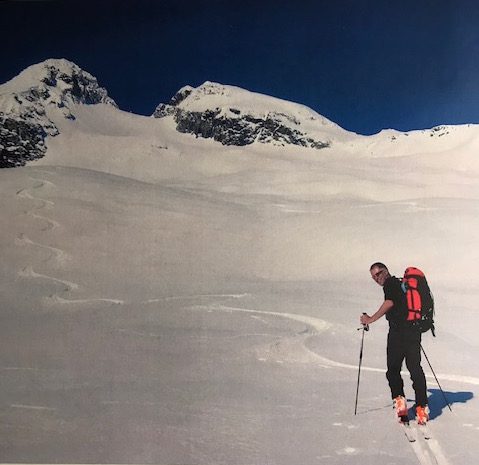
2006 Doug at ski school Revelstoke
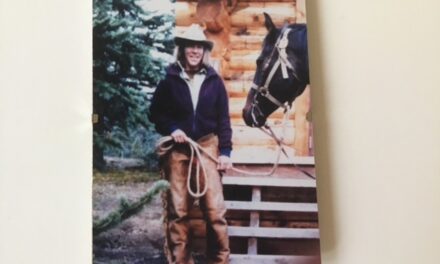
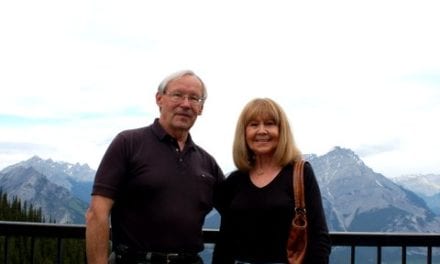
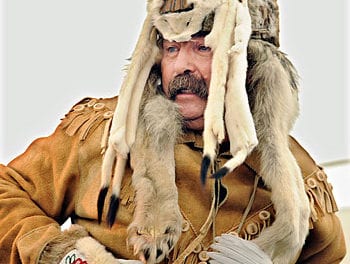
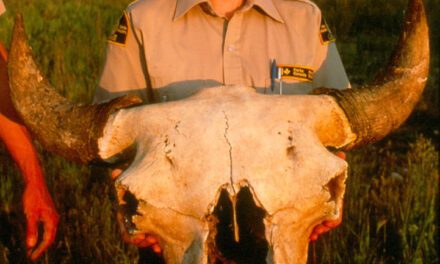
amazing, i spent a lot of my time in the mountains, Jasper and Banff, and much on the east sloops and the cardinal river, mountain park area and never met up with Doug, my first cousin, but it sounds like we are much the same only it he did i flirted with it. the immense nature of the back country is not appreciated until one spends time there .He worked with many people that i knew. thank you